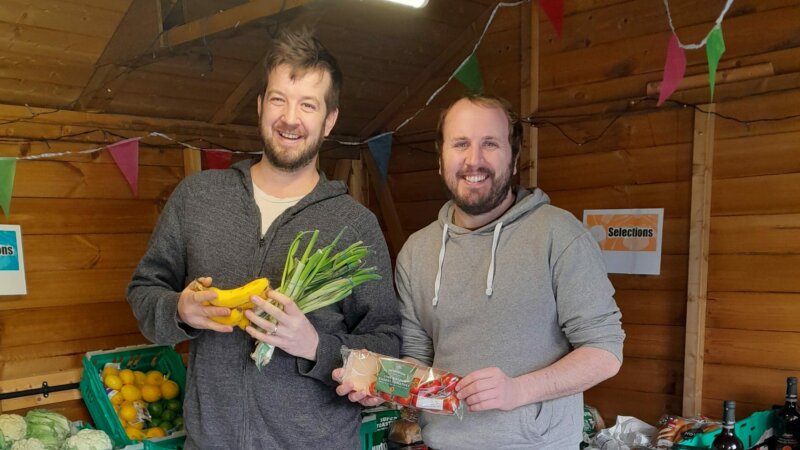Big Society: Cameron's passion vision or big con?
The Big Society idea surfaced during the election battle of last year, and for many it seemed just another political gimmick by the Tories to rid themselves of their "nasty party" image in an attempt to rehabilitate themselves with Britain's centre ground. Political pundits forecast that after the Tory victory and the subsequent coalition with the Lib Dems, it would disappear like political summer mist. But after early faltering in its presentation, a major speech by Cameron declared the Big Society as his passionate vision and its inclusion in every cabinet minister's speech is now almost de rigeur.
With no credible alternative able to capture the public trust, the State has loomed large in the provision of services since 1945 and, even through attacks by the Thatcher Government, the idea of cradle-to-grave public services, particularly the NHS, has retained the support of the majority of the electorate. However, the Coalition now argue that the idea of a Big Society - far from diminishing services to the public - will improve the delivery and cost effectiveness of services, with communities deciding their own agendas and which services to keep. With political theorists on both the far right and the far left suspicious of state involvement in society, the majority of us in between are waiting to see if there is any ideological meat on the bone of the Big Society, or if it is just cover for cuts in public expenditure and a return to Victorian charity culture.
SUPPORTERS.
Eric Pickles, Minister for Communities
Eric began his life on the left as a young communist but went on to become their scourge under Thatcher, first as leader of Bradford Council and then as an MP on the right of the party. He has won no friends with his blunt condemnation of local government and public services, and has even attracted condemnation from Lib Dem and Tory councillors for the speed and depth of the current cuts. Pickles has earned the nickname of 'Chairman Mao' for his alleged belief that for the Big Society to groweverything before has to be destroyed.
Large Corporations: Capita, A4E, Group 4, Serco et al
Many large corporations are now front-line providers of public services through outsourcing. The Big Society offers an opportunity for them to become the provider of choice for Government contracts. Only these organisations have the capital to meet the criteria for primary contracts, and then sub-contract the voluntary sector to deliver the service using volunteers as core workers and advisors.
DETRACTORS.
Local Authorities and Public Sector
Many see the advent of the Big Society as not only about delivery, but also about democratic accountability through the electoral process. With contracts lasting up to five years, the ability to change or affect service delivery by the electorate or elected officials will render elections immaterial, with a glorified X-Factor process acting as a fig leaf for real democracy. It may also see the end of universal services, with the public divided into the 'deserving' and the 'undeserving' poor. There is already talk of the Government abandoning the statutory delivery of services.
Trade Unions
The unions see the Big Society as the final attack on organised labour within the UK. With workers transferred to the private and voluntary sectors and fragmented into smaller units, the experience has been of lower pay and worse terms and conditions, particularly pensions, and security of employment lasting no longer than the contractor sees fit.
Current Volunteers
The number of people volunteering is already at an all-time high and many feel that the Big Society takes the element of 'voluntary' out of the equation, as more and more vital services are put on the goodwill of people with a conscience. One local volunteer described it as "taking the piss" and a return to the "welfare to work" of Thatcher. Many graduates now find a year of 'voluntary' work is a necessity before being able to find work. When Francis Maude, Tory Chairman, was asked on Radio 4 about his volunteering he claimed it was an unfair question and then decided going to his local church qualified him as a volunteer.
THE IN-BETWEENIES.
Voluntary Organisations Sector
The sector is genuinely split over the idea of the Big Society, with those able to win contracts claiming superior delivery and a more focussed approach to clients than current public service deliverers. Many, particularly those in the North, view the promise of philanthropic capital from business and entrepreneurs as unlikely and coming with too many strings.
LET THEM EAT CAKE.
The Chief Executive of a large local charity, speaking from the not-too distant future, had this to say:
I've been working in the voluntary and public sectors for over 20 years. Since the advent of the Big Society, there have been some changes. Take Mary, for example. Mary used to be a model employee. Her work is now completely unpaid. Today she was two hours late for work "because the volunteer community bus driver who picks up her disabled daughter didn't show". She's forever getting called out to the hospital as a volunteer midwife which, frankly, gets in the way of meetings.
It's easy to make the Big Society into some kind of joke, but I don't want you to just dismiss it as a laugh, because it is dangerous as currently presented. I'm certainly not against volunteering and recognise some cuts are necessary, but the Big Society as a concept is treacherous because of the smoke and mirrors it creates around the devastation of public services.
Prolonging the use of this phrase is damaging because it disguises the fact that the opposite is taking place - the cuts are already having a greater than proportionate effect on the poorest and most vulnerable people in this country. What I see emerging in fact is a Smaller Society, one which is less accessible to more and more people. At the moment everyone is working hard to minimise the impact of the reduction in funding. What will be the effects further along the line, when staff and volunteers have reached breaking point and can no longer make up for the loss of state funded services?
I want to outline some of what's happening in Sheffield. Advice centres - which support people in matters from accessing benefits, finding out about their maternity rights or getting support with debt - have only six months' funding left from the local authority. Many other services in Sheffield have had up to 15% cuts and only six months' funding agreed.
But it's not just the cuts from the Government or local authorities that are the issue. The voluntary sector provides a huge range of services essential to some of the more vulnerable people in our country. This sector has been singled out to fill in the gaps where public authorities can no longer provide services, at a time when competition for resources has never been so fierce. Trust funds are overwhelmed by applications for funding. Many infrastructure organisations, which would have been key to organising this supposed army of volunteers, are in danger of closing altogether. Sheffield's own community empowerment network, OFFER, went last year.
At the charity I work for, we've lost our women's project, which supported female survivors of violence and persecution. Our mentoring service was wiped and our advice service for refugees and asylum seekers is dangling precariously. So many projects have finished or are coming to an end this year for agencies across the country. There are few people in this sector who see any light beyond 2011.
I watch a lot of House of Commons debates. I've seen three ministers giving the example of communities coming together through running the village pub, somehow making up for the loss of other services. In Sheffield, news that the Rushey Meadows residential respite care home for children was facing closure highlighted the unsteady nature of these services. In the end, the decision was reversed following outcry from parents and the local press, yet funding for this type of support across the country has still been
dramatically reduced.
Are these ministers so detached from what's going on? The village pub will not provide respite care. The Big Society does not exist. I hope that a civilised, honest society can emerge instead. )





